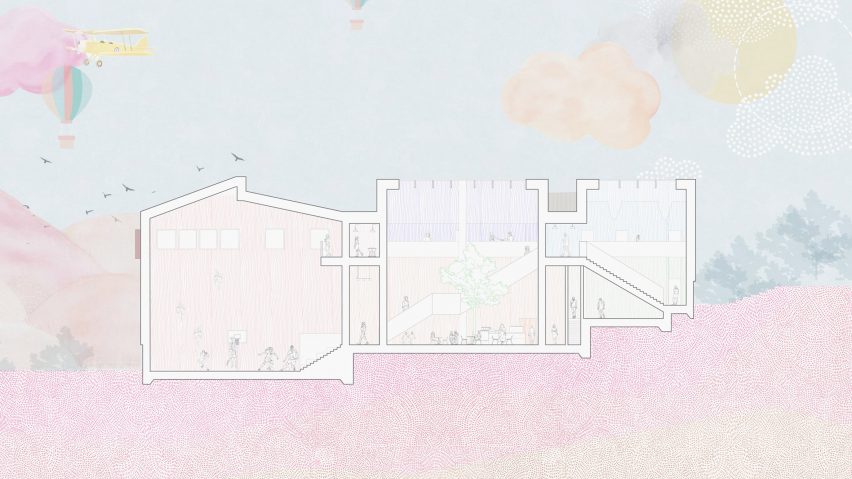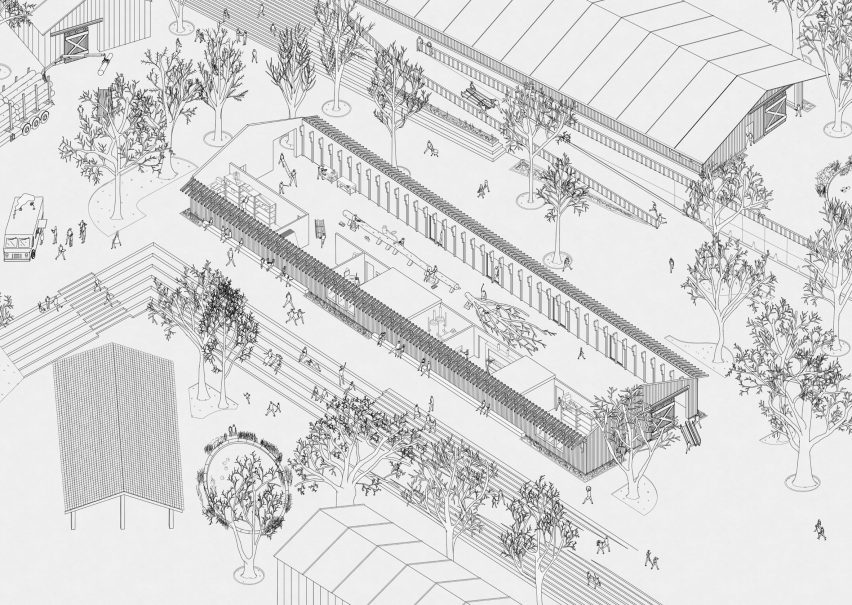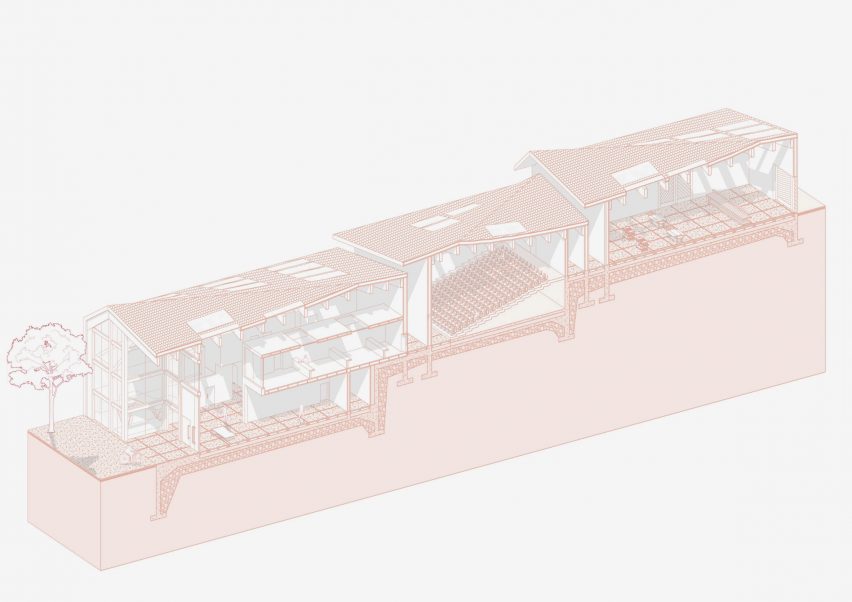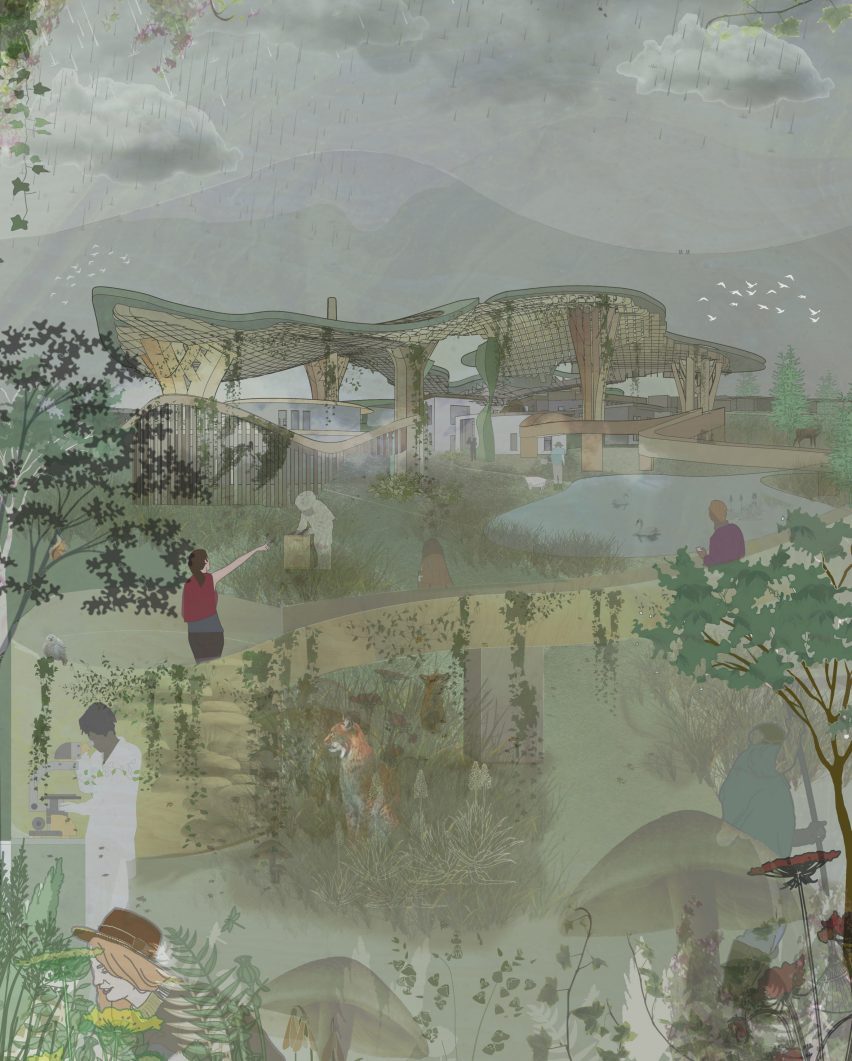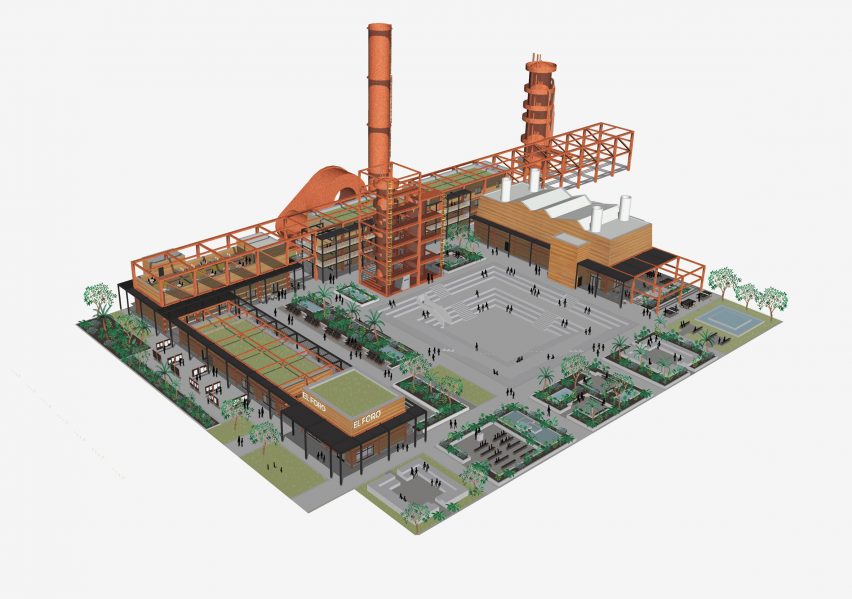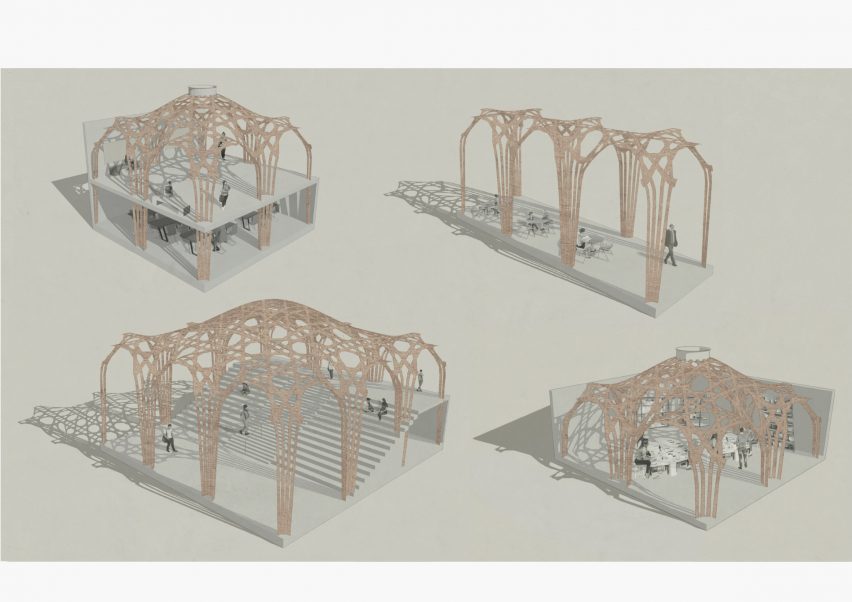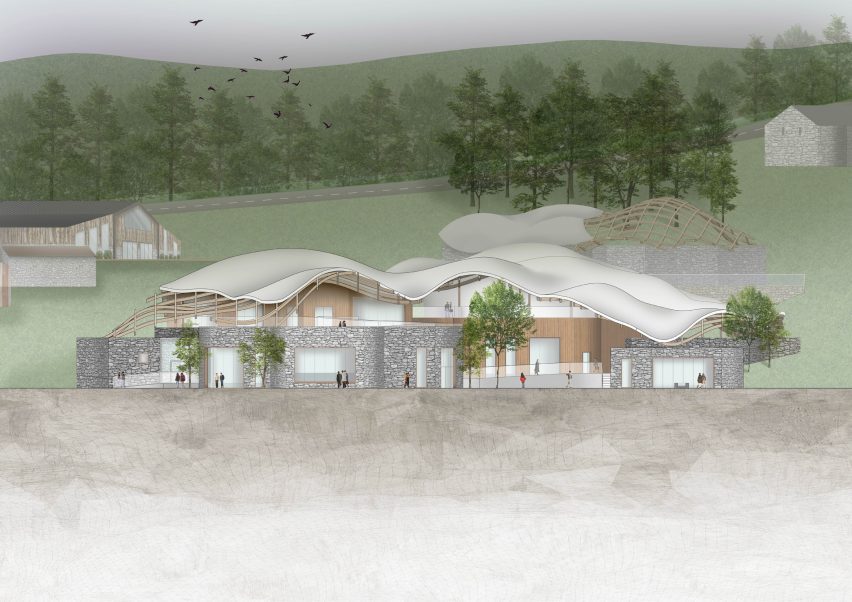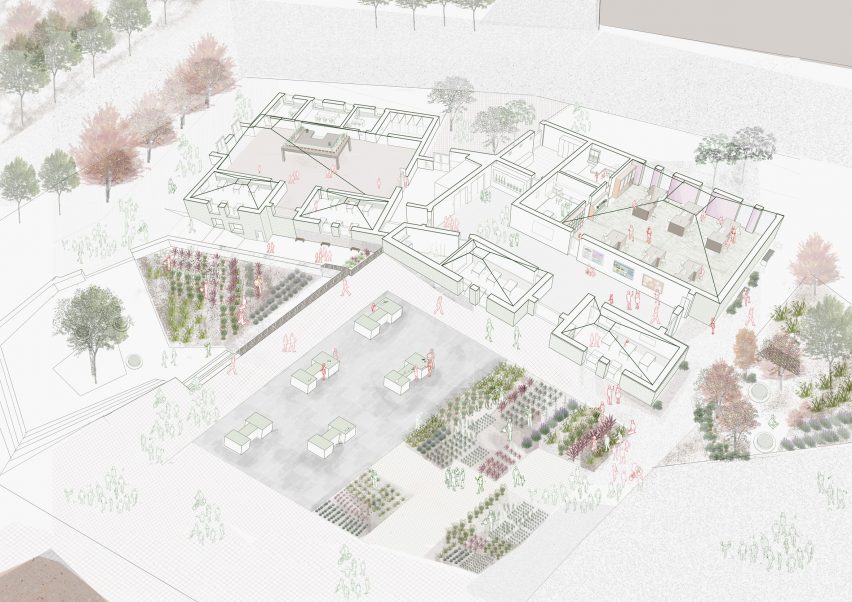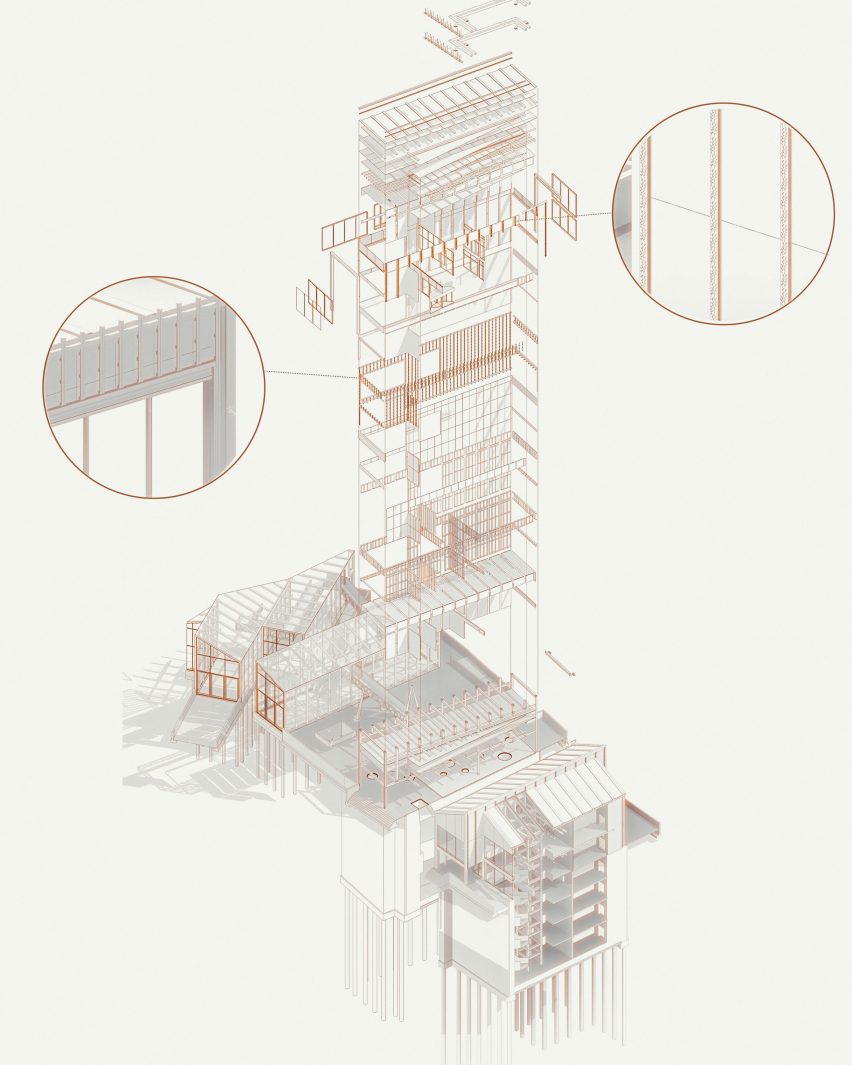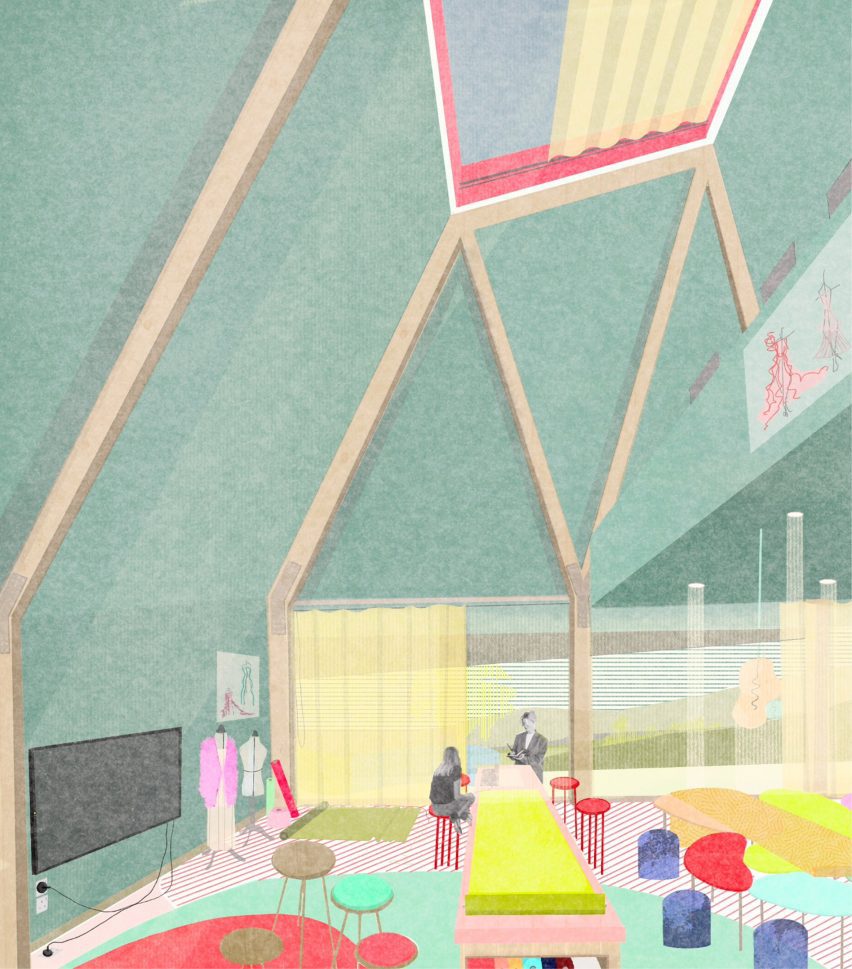Dezeen spotlights ten student projects from Lancaster University School of Architecture
Dezeen, the online architecture, interiors and design magazine based in London, have recently spotlighted 10 of our Architecture students’ amazing work.
Students designed a campus building made from locally sourced materials including slate and copper. Other designs included a sports and wellbeing faculty, a workspace for textile designers and a campus building encouraging the use of natural materials.
Lancaster School of Architecture as featured their designs and concepts at the LICA Festival ’24 Degree Show entitled ‘Inhabit’.
School statement:
Future practice, digital crafts and climate emergency are the three concerns that underpin everything we do at Lancaster University School of Architecture.
“Our students explore future practice, including how issues such as rapid urbanisation, changing societal structures and patterns of working, new materials and accelerating digitalisation necessitate a new kind of architectural professional.
Our students will be future pioneers of digital crafts such as digital fabrication, agile production, rapid prototyping, disruptive technologies, advanced manufacturing and the maker movement.
Climate change is seamlessly integrated into everything we teach – it is utterly normalised and part of our everyday conversation.
Lancaster University is a UK top ten university and an inspirational setting for studying architecture.
Architecture is ranked seventh in the Complete University Guide (2025) and is second for student satisfaction.
In the National Student Survey (2023) Architecture at Lancaster is ranked fifth for learning resources.
Courses at Lancaster University include the RIBA-accredited Part 1 BA (Hons) Architecture, with options for a placement or study abroad year.
There is also Part 2 Master of Architecture, and a PhD in architecture.
Throughout our courses, students develop professional skills and contacts through live projects, networking events, practice experience and mentoring by professional architects.”

